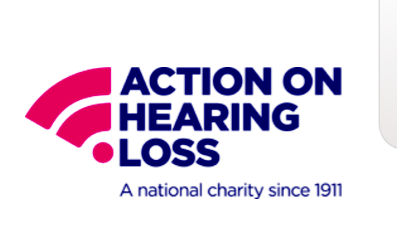Blog
-

Action on Hearing Loss supports launch of “Accessible Information Standard” for people with hearing deficits in the UK. (This is a major step forward for the hearing challenged in Britain).
 1 Sep , 2016
1 Sep , 2016
We recently explained in another post, the changes taking place in the UK regarding care for the hearing challenged. The Charity, “Action on Hearing Loss” is welcoming the launch of the “Accessible Information Standard”, which came into full force August 1st.
The charity “Action on Hearing Loss” has now launched a new project in mainstream care homes across the North of England to improve the care and support provided to older people with hearing loss and reduce social isolation.
The three-year project ‘Hear to Care’ will pilot and test changes or improvements which can be made in mainstream longer-term care settings to improve the diagnosis and management of hearing loss.
Development projects manager at Action on Hearing Loss, Sarah Treadwell-Baker, said: “We are delighted to be working directly within care settings to ensure that all residents are getting the best support to manage their hearing loss.
“Whether it is through screening residents to see whether they need hearing aids, providing assistive equipment such as listening devices or offering basic maintenance like re-tubing and replacement batteries to existing NHS hearing aid users, we hope to make a real difference to their quality of life.
“We want to make dealing with hearing loss a priority in care home settings to ensure that residents feel confident in communicating and socialising with their peers and continue to enjoy life at the home.”
As hearing loss is a 24/7 condition, the charity’s staff will work with care workers to ensure that managing hearing loss becomes part of the daily routine of the home, helping to combat social isolation which sensory loss can often cause.
At the end of the project, guidance and a toolkit will be produced and made available to mainstream care providers across England. Information collected will also be shared with the Care Quality Commission (CQC) and other key health and social care organisations to promote best practice.
Over 70 per cent of over-70-year-olds are living with hearing loss in the UK and many older people with hearing loss have additional health problems such as frailty, physical impairments or sight loss. They are also at higher risk of developing other health problems such as anxiety, depression and dementia.
However, there remains a high level of undiagnosed hearing loss with research suggesting that people wait, on average, ten years to seek help for their hearing loss. People with undiagnosed hearing loss may find it difficult to communicate with family, friends and care staff, which may lead to feelings of loneliness and people withdrawing from social situations.
According to a previous report ‘A World of Silence’, Action on Hearing Loss found that many older people in residential care homes did not want to address their hearing loss – and care staff found it difficult to encourage them to seek help.
The care staff the charity spoke to also admitted that hearing loss was sometimes seen as less important compared to other issues such as sight loss, pain or safeguarding. Some care staff were unaware of technology that could help people with hearing loss and others lacked the know-how to carry out basic hearing aid maintenance.
The charity believes that diagnosing and managing hearing loss, and taking hearing loss into account when caring for older people with other long-term conditions are vital for good communication and care.
Funding for the scheme was provided by the Department of Health’s Innovation Fund following research undertaken by the charity which found that if the hearing loss of those in care homes is managed effectively, there is a real chance of improving quality of life.
Action on Hearing Loss (formerly RNID) is the national charity helping people to confront deafness, tinnitus and hearing loss. The charity enables them to take control of their lives and remove the barriers in their way, giving people support and care, developing technology and treatments, and campaigning for equality.
Source: Care Home UK
Image credit: Action on Hearing Loss





























































































































































































































































































































































































































































































































































































